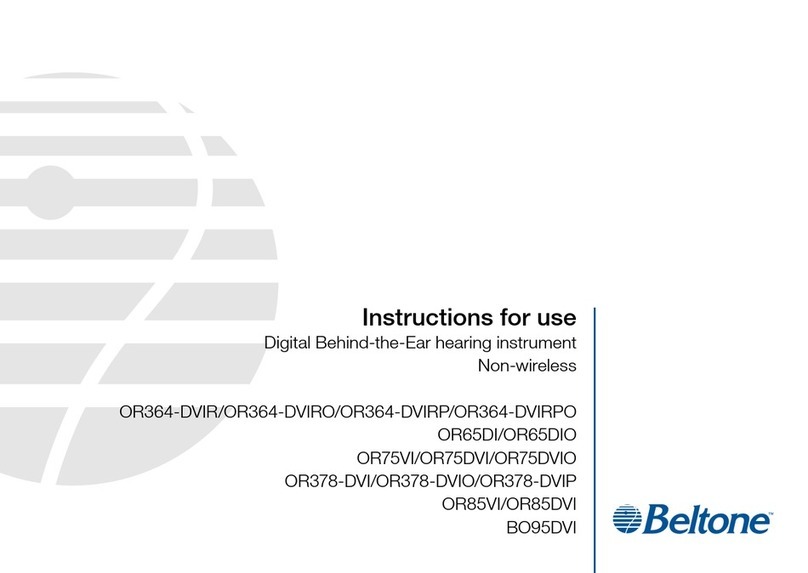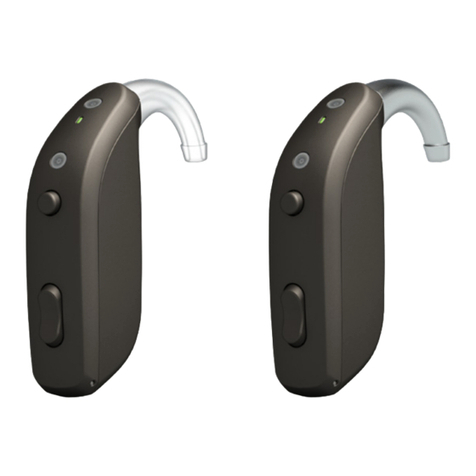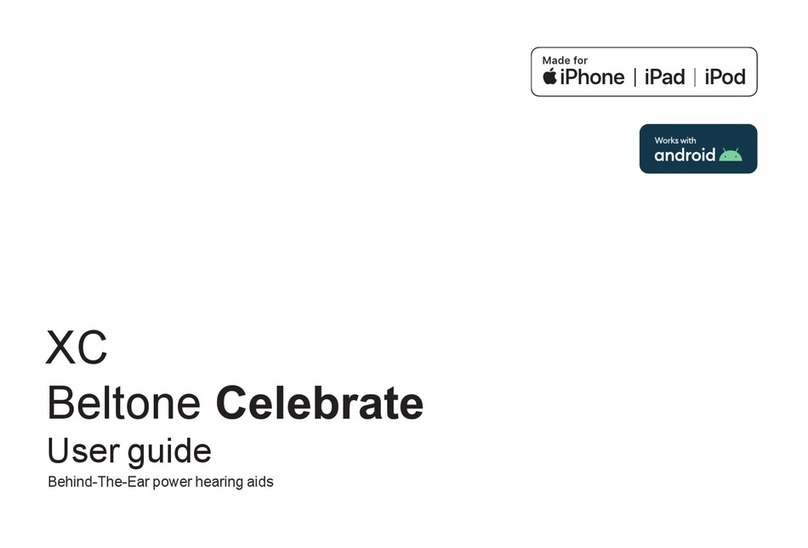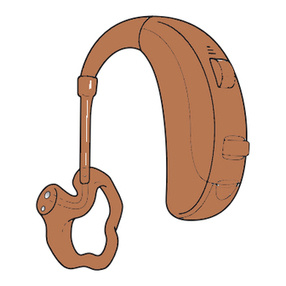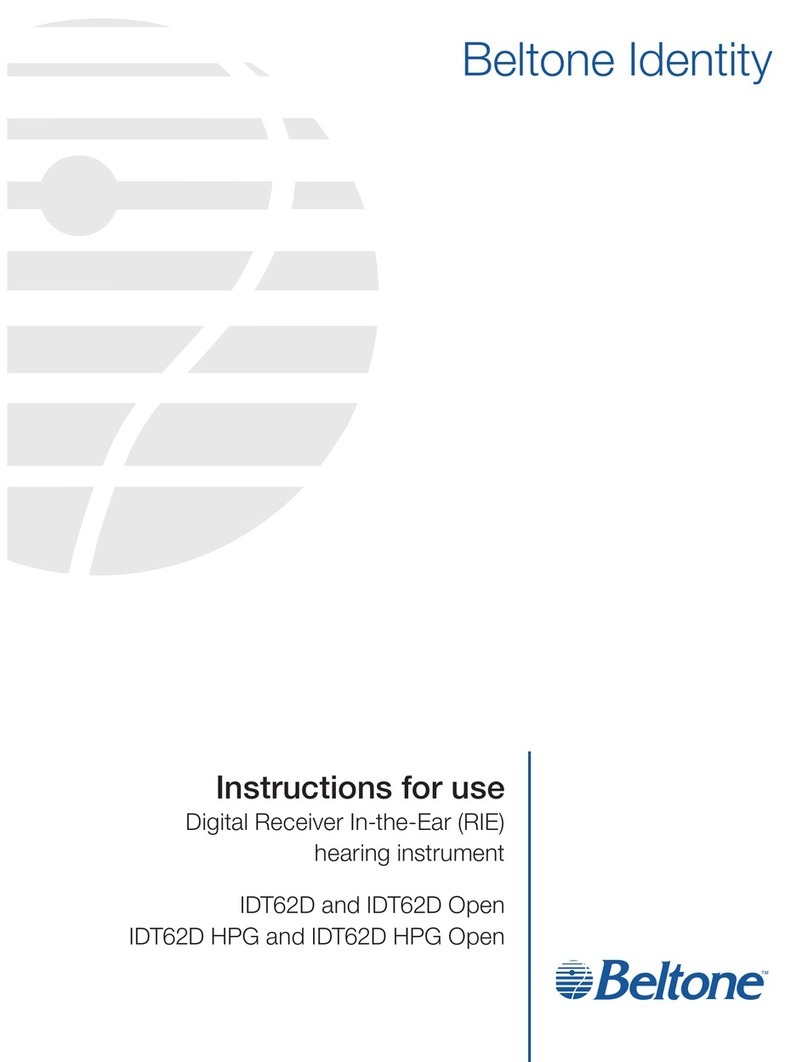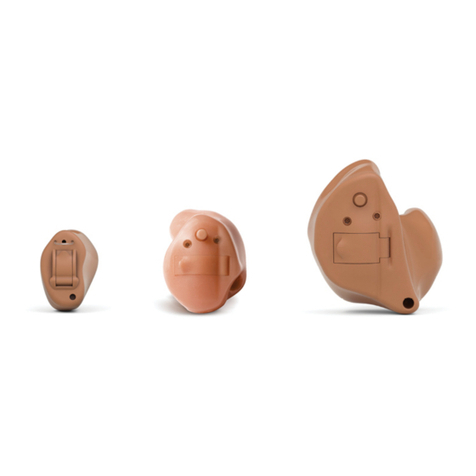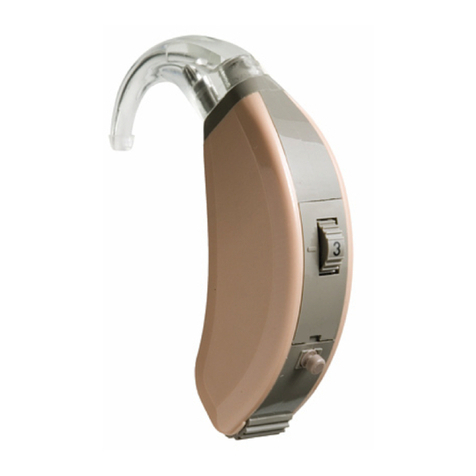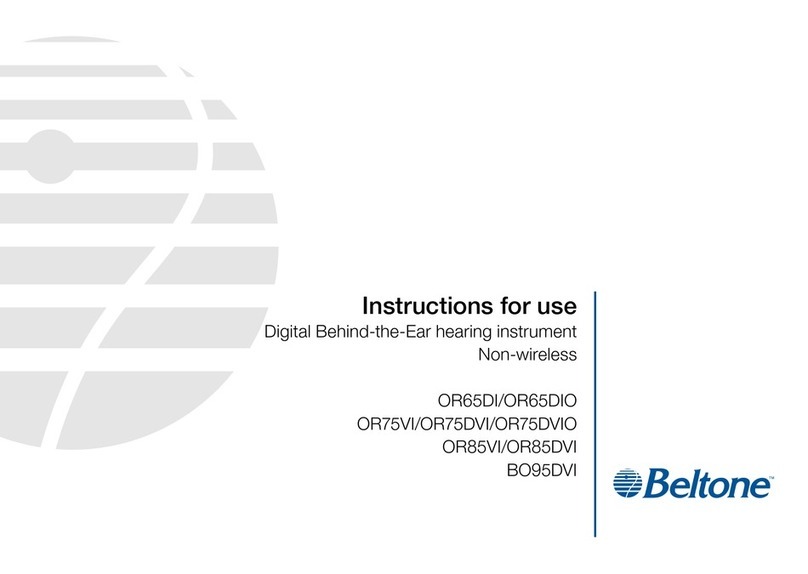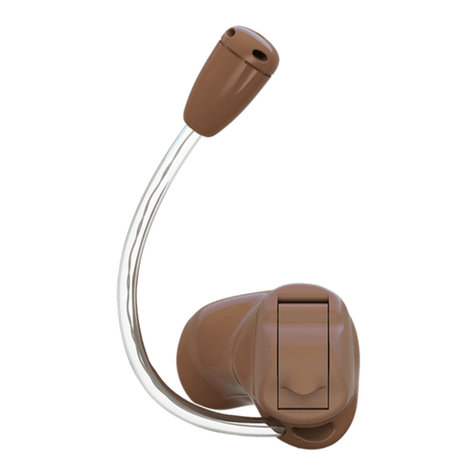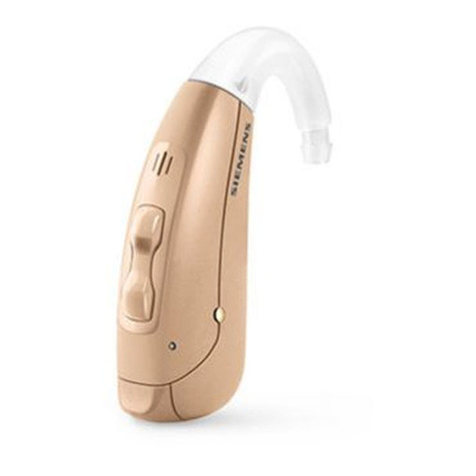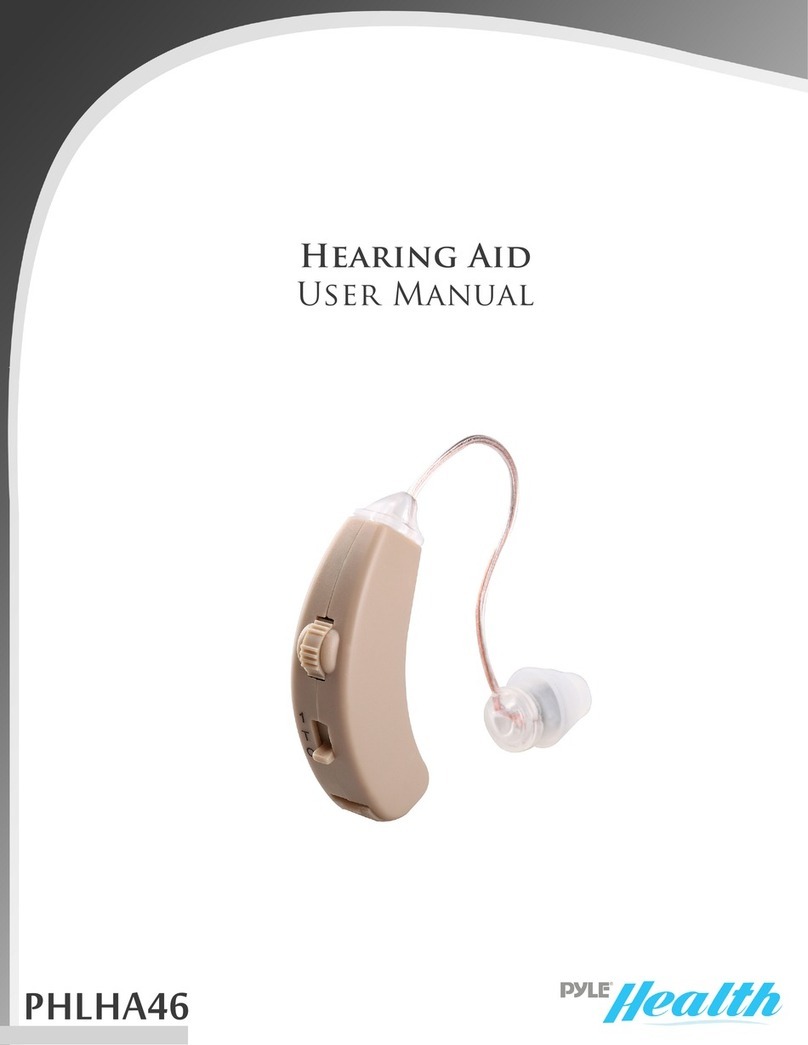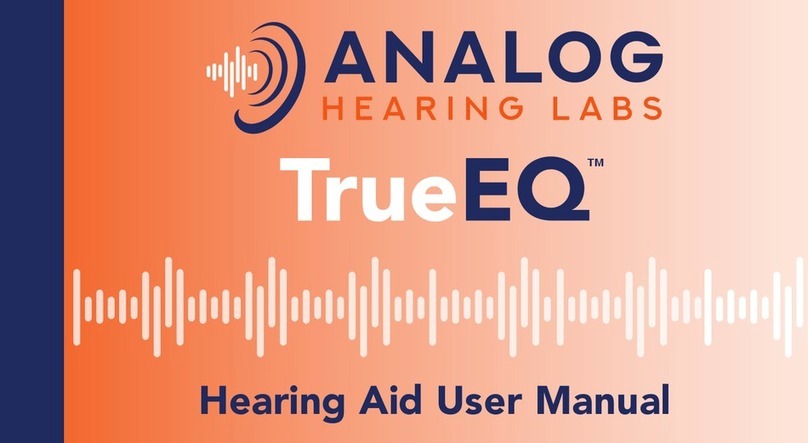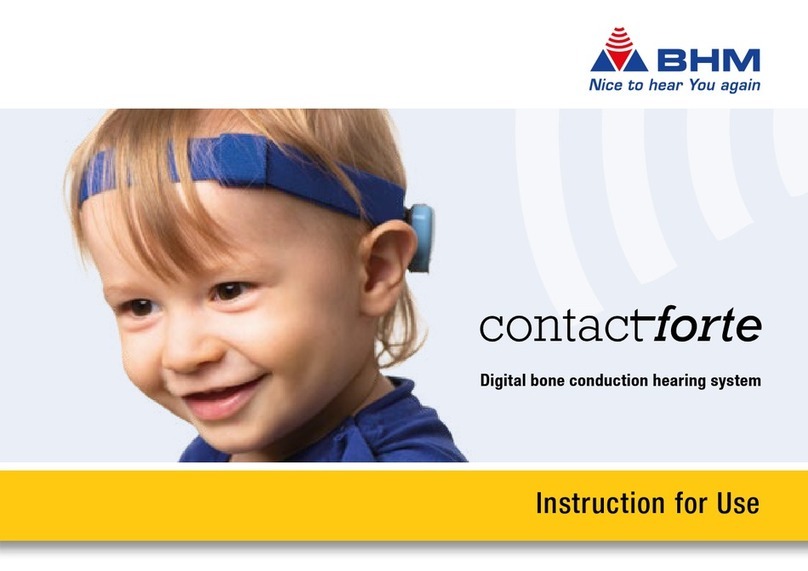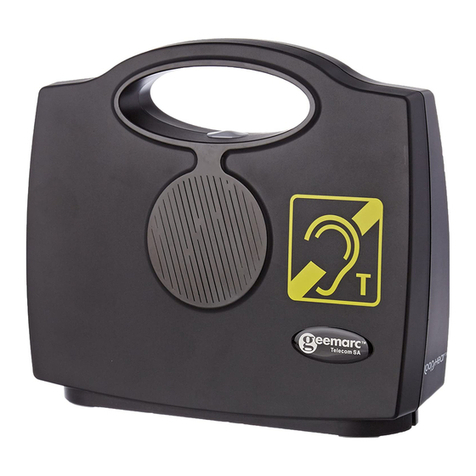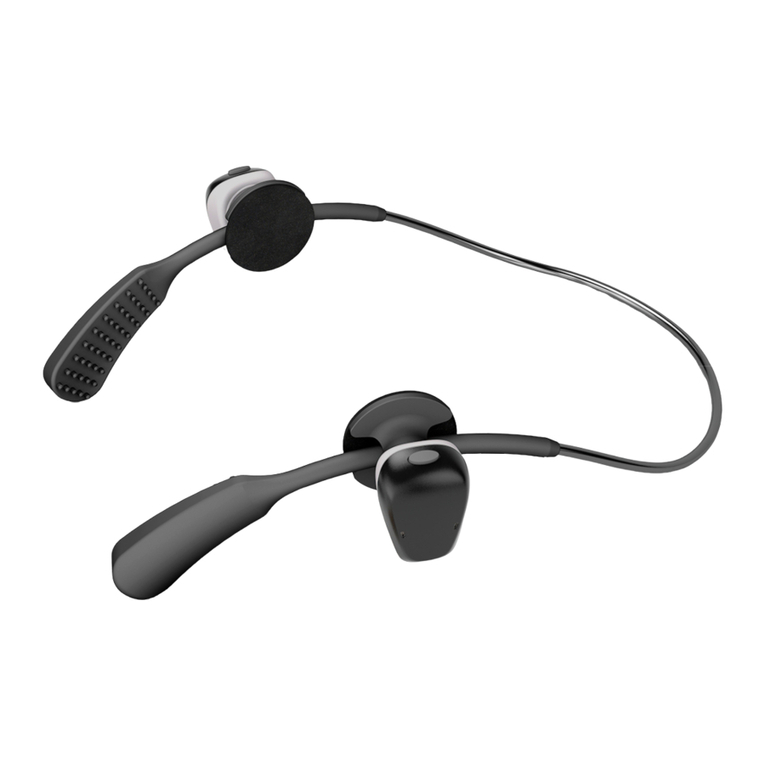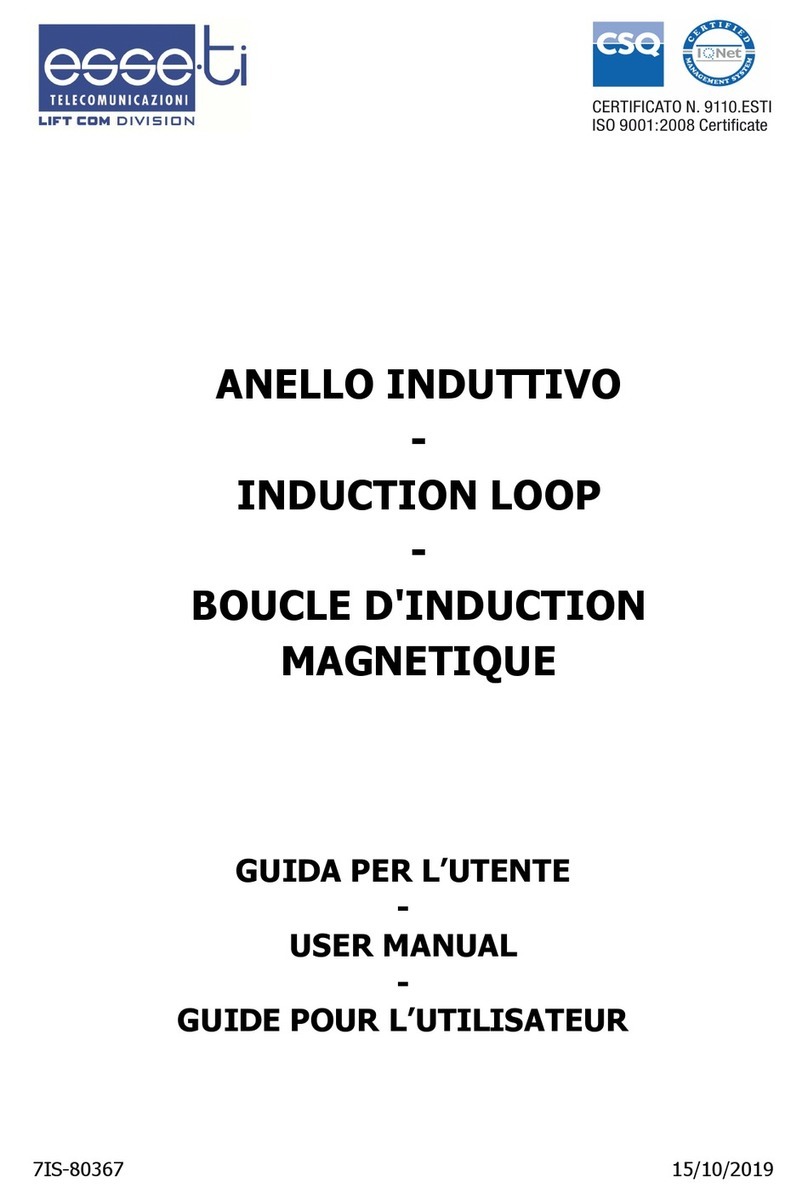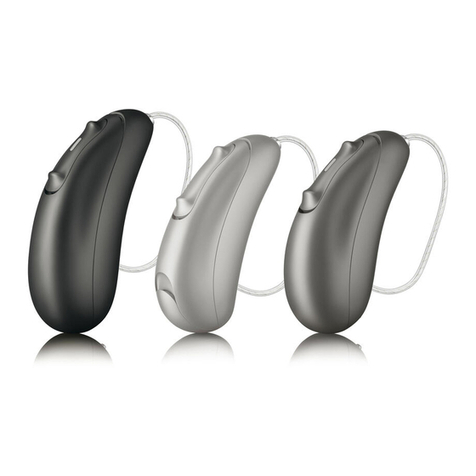
4 5
Warning to hearing care professional i
A hearing care professional should advise a prospective user to consult promptly with a licensed physi-
cian (preferably an ear specialist) before setting the instrument if the hearing care professional determines
through inquiry, actual observation, or review of any other available information concerning the prospective
user that the prospective user has any of the following conditions:
(i) visible congenital or traumatic deformity of the ear;
(ii) history of active drainage from the ear within the previous 90 days;
(iii) history of sudden or rapidly progressive hearing loss within the previous 90 days;
(iv) acute or chronic dizziness;
(v) unilateral hearing loss of sudden or recent onset within the previous 90 days;
(vi) audiometric air-bone gap equal to or greater than 15dB at 500 Hz (hertz), 1000 Hz, and 2000 Hz;
(vii) visible evidence of significant cerumen accumulation or a foreign body in the ear canal;
(viii) pain or discomfort in the ear.
Important Notice to Prospective Hearing Aid Users
Good health practice requires that a person with a hearing loss have a medical evaluation by a licensed
physician (preferably a physician who specializes in diseases of the ear) before purchasing a hearing aid. Li-
censed physicians who specialize in diseases of the ear are often referred to as otolaryngologists, otologists
or otorhinolaryngologists. The purpose of the medical evaluation is to assure that all medically treatable
conditions that may affect hearing are identifi ed and treated before the hearing aid is purchased.Following
the medical evaluation, the physician will give you a written statement that states that your hearing loss has
been medically evaluated and that you may be considered a candidate for a hearing aid. The physician
will refer you to an audiologist or a hearing aid dispenser, as appropriate, for a hearing aid evaluation. The
audiologist or hearing aid dispenser will conduct a hearing aid evaluation to assess your ability to hear
with and without a hearing aid. The hearing aid evaluation will enable the audiologist or dispenser to
select and fi t a hearing aid to your individual needs.If you have reservations about your ability to adapt to
amplifi cation, you should inquire about the availability of a trial-rental or purchase-option program. Many
hearing aid dispensers now offer programs that permit you to wear a hearing aid for a period of time for a
nominal fee after which you may decide if you want to purchase the hearing aid.Federal law restricts the
sale of hearing aids to those individuals who have obtained a medical evaluation from a licensed physi-
cian. Federal law permits a fully informed adult to sign a waiver statement declining the medical evalua-
tion for religious or personal beliefs that preclude consultation with a physician. The exercise of such a
waiver is not in your best health interest and its use is strongly discouraged.
A hearing aid will not restore normal hearing and will not prevent or improve a hearing impairment result-
ing from organic conditions.
Consistent use of the aid is recommended. In most cases, infrequent use does not permit you to attain
full benefi t from it.
The use of a hearing aid is only part of hearing rehabilitation and may need to be supplemented by audi-
tory training and instructions in lipreading.



















